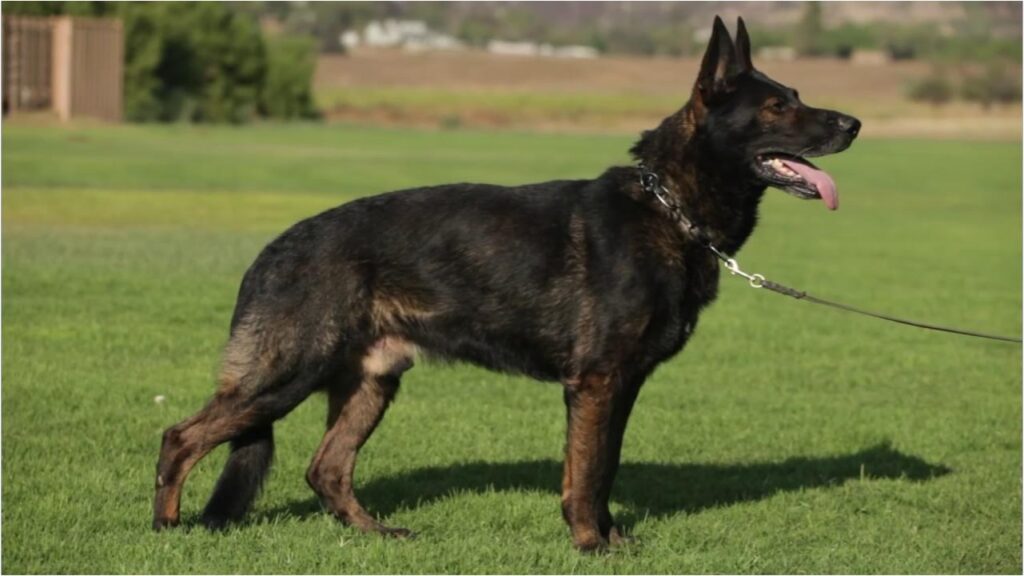
German Shepherd Dog is one breed, but it comes in several lines based on appearance, purpose, and origin. German Shepherds are primarily carnivorous, but like most dogs, they are technically omnivores.
Here are the main types of German Shepherd Dog breeds –

1. American Show Line German Shepherd
American German shepherd is tall, long legs, sloped back, thinner frame are milder, more suited for family life with black and tan, sable, bi-color.

2. West German Working line
West German working line are more balanced and muscular, straighter bar are energetic, intelligent, and loyal are used for Police, military, protection work are in sable, black and tan, bi-color.

3. West German Show Line
West German show line are in rich colors, sloped back, thicker coat with balanced drive, obedient are used for show and active family dogs are in black and red is common.

4. East German Working Line
East German Working line appearance are very strong, compact, thick bone structure, large heads are loyal, focused, high drive mostly used in military, border patrol in East Germany are in dark sable, solid black.

5. Czech Working Line
Czech working line appearance are similar to east german working line but slightly leaner are very intense, hardworking, high prey drive. They are used in military and police work bred by Czech border control are in dark sable, black, sometimes wolf-like appearance.

6. Panda German Shepherd
Panda German shepherd appearance are unique white markings with black and tan or sable same as standard german shepherd dog there color is due to a gene mutation, not a mix.

7. White German Shepherd
White German shepherd appearance are pure white coat, medium to long fur are calm, loyal, smart and are used as family pets, service dogs, they’re recognized as a color variant.
German Shepherd Dog need a balanced diet with-

1. High protein foods
High protein foods are chicken, beef, lamb, fish, healthy fats omega-3, omega-6, carbohydrates are brown rice, sweet potatoes, vitamins and minerals such as fruits, vegetables.
2. High Protein Needs
Due to their size, energy and muscular build, german shepherd require more protein than many other breeds. Protein helps in muscle development, energy production, tissue repair.
3. Age-Dependent Diet
German shepherd puppies need more calories, calcium, and phosphorus for bone growth. Adults need a balanced mix for maintenance and activity. Seniors may require less fat and more joint supplements like glucosamine.
4. Sensitive Digestive System
Some German Shepherds can have sensitive stomachs. They may suffer from food allergies, common triggers grains, chicken, dairy, digestive issues loose stools, gas. Grain-free or hypoallergenic diets may help in such cases.
5. Hydration is Key
Always provide clean, fresh water. German shepherd are active and need plenty of water, especially in hot weather and after exercise.
6. Avoid These Foods
Avoid Harmful toxic foods to German Shepherds like Chocolate, Grapes and raisins, Onions and garlic, Alcohol, Cooked bones, High-fat table scraps.